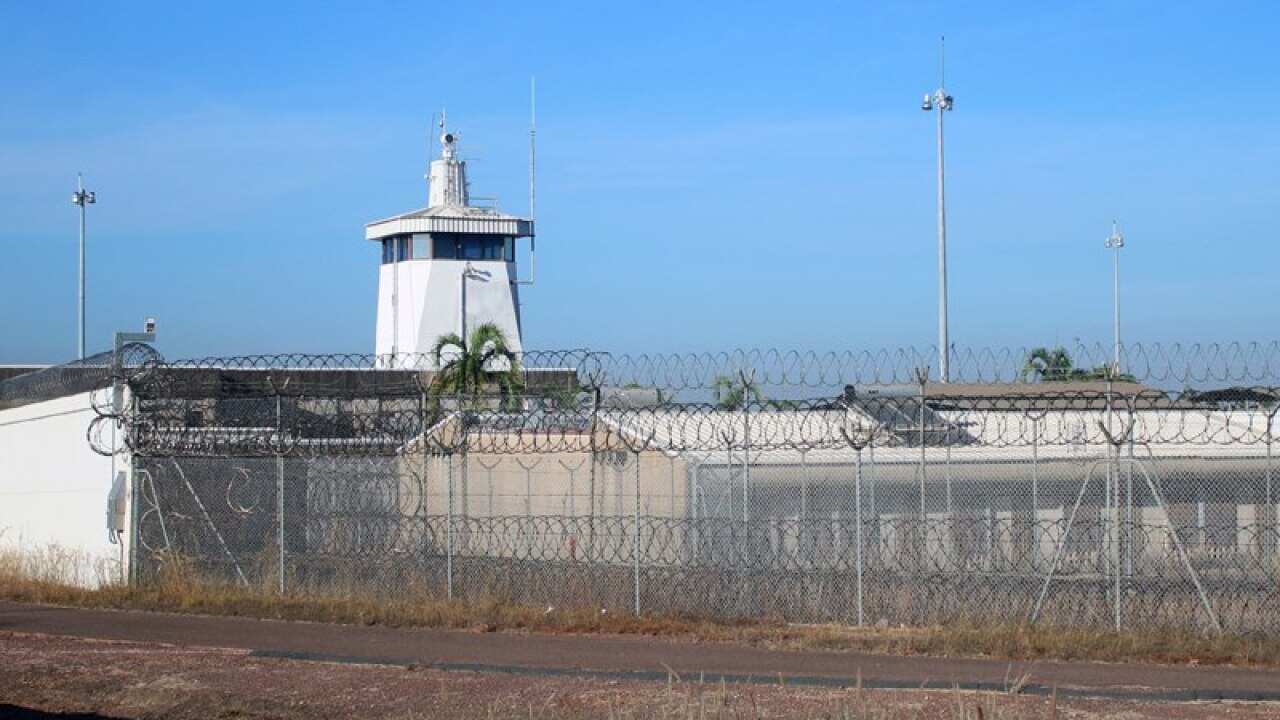The Northern Territory youth justice royal commission has blocked criticisms from a politician who was sacked over the tear-gassing of boys in jail from being made public, following a complaint by the national broadcaster.
The ABC objected on Thursday to former corrections minister John Elferink's statement attacking its Four Corners program from being submitted to the inquiry.
The shocking 2014 footage of young offenders including Dylan Voller being gassed, spithooded and shackled to restraint chairs was aired on national television last year in a scandal that sparked the inquiry.
Mr Elferink was sacked in the aftermath, and has publicly slammed the ABC's program in the past for being biased and misleading.
Lawyers debated at length the relevance of Mr Elferink's judgements from being tendered to the inquiry, questioning whether they were a "distraction".
But senior counsel assisting the inquiry Peter Morrissey SC admitted the complaints exposed "an arguable case for grievance on behalf of Mr Elferink".
Mr Elferink's barrister Andrew Harris QC argued the ABC's program is intrinsically linked to the inquiry, and Mr Elferink deserved a voice after being "a standing target for six months".
He said the broadcaster's transparency was a pressing issue, not just Mr Elferinks "sensibilities".
"(But) this is not a royal commission into the ABC. That may be for another occasion," he said.
"He was interviewed for five or six hours and most of that didn't find it's way anywhere into the story."
The former Country Liberals government has previously condemned the ABC program for omitting improvements being made to the prison system.
The CLP said the story ignored the fact that officers criminally prosecuted for some of the alleged abuses had been acquitted of assault. Commissioner White concluded that the inquiry wasn't investigating whether the program was balanced, and Mr Elferink's remarks were ultimately redacted.
Commissioner White concluded that the inquiry wasn't investigating whether the program was balanced, and Mr Elferink's remarks were ultimately redacted.

Former NT teen inmate Dylan Voller. Source: AAP
Mr Elferink admitted he was disturbed by the state of the rundown, unsuitable juvenile facilities and found Don Dale Detention Centre's solitary confinement cells were not fit for purpose.
"There was a strong smell of urine in the facility," he said.
Mr Elferink said kids were forced to urinate in their cells due to a lack of toilet access, and detainees in the notorious Behavioural Management Unit would throw cups of urine at guards.
"Inmates would occasionally use their human waste as a weapon against the staff," he said.
Mr Elferink said he grappled with an increasingly violent prisoner population, overcrowding, escapes and the effects of a casualised workforce.











